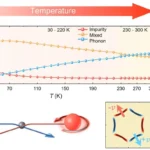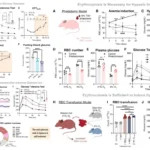Key Points
- University of Queensland researchers are developing a topical cream to prevent and treat skin cancers in transplant patients.
- $344,000 from the National Foundation for Medical Research and Innovation will support pre-clinical development.
- The novel drug prevents and treats skin cancer, addressing gaps in existing treatments for squamous cell carcinomas (SCC).
- QEDDI is refining skin application depth and scaling manufacturing for clinical trials. UniQuest has patented the molecule, ensuring its path to clinical trials.
A world-first topical cream designed to prevent and treat skin cancers in organ transplant patients is moving closer to clinical application thanks to groundbreaking research at the University of Queensland (UQ). The project recently received $344,000 in funding from the National Foundation for Medical Research and Innovation to propel its pre-clinical development.
Developed at UQ’s Frazer Institute, the cream features a novel drug aimed at preventing the formation of skin cancer and treating early stages of the disease. The discovery was made in collaboration with UniQuest’s small molecule drug discovery initiative, QEDDI. Associate Professor James Wells, who led the research, emphasized the significance of this funding in advancing the cream’s development.
“This funding is vital for progressing the cream through pre-clinical stages and creating a formula suitable for human skin application,” said Dr. Wells. “It represents a major milestone in potentially bringing this promising treatment to clinical trials.”
The drug offers a dual benefit: it prevents the formation of skin cancer and addresses early-stage cases, specifically targeting organ transplant recipients. These patients must take immunosuppressive drugs to prevent organ rejection, which significantly heightens their risk of developing skin cancers, such as squamous cell carcinomas (SCC) and Kaposi’s Sarcoma.
Currently, there are no FDA-approved medications for SCCs in transplant patients, and treatment relies heavily on regular skin checks and surgical removals. These interventions often span a patient’s lifetime, with limited options once the cancer advances and metastasizes. “This new treatment could be life-changing for transplant recipients who face increased cancer risks due to immunosuppressive therapy,” added Dr. Wells.
Pre-clinical efforts led by QEDDI include testing the cream’s penetration and efficacy on human skin and scaling up production for larger trials. Dr. Dean Moss, CEO of UniQuest, expressed optimism about the cream’s potential. “A first-of-its-kind treatment for transplant patients will significantly improve their quality of life. It’s exciting to see this innovation progress towards clinical use,” said Dr. Moss.
UniQuest has secured a patent for the drug, further solidifying its potential as a revolutionary solution in dermatological care.





